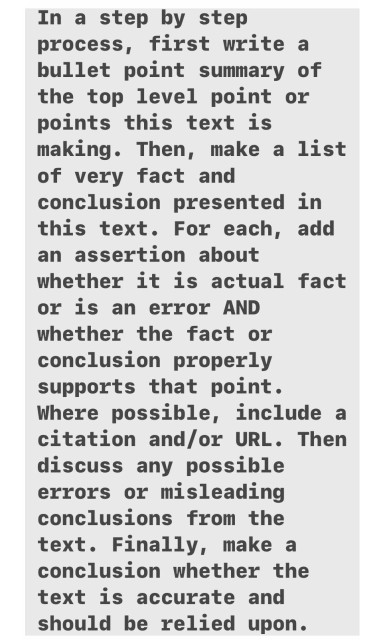Turns out that LLM summaries are actually useful.
Not for *summarizing* text -- they're horrible for that. They're weighted statistical models and by their very nature they'll drop the least common or most unusual bits of things. Y'know, the parts of a message that are actually important.
No, where they're great is as a writing check. If an LLM summary of your work is accurate that indicates what you wrote doesn't really have much interesting information in it and maybe you should try harder.















I suspect, in the most cynical way I can muster (which, tbh, is *fantastically* and enthusiastically cynical) this is why upper management loves them so much and thinks they're awesome for summarizing emails -- the overwhelming majority of C-suite/VP+ level communication is performative and essentially information-free.